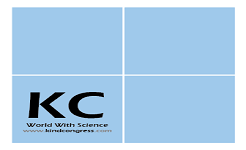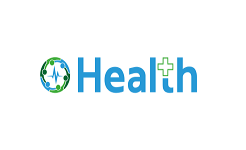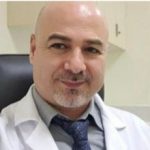Track 1 : Nursing
Nursing stands as the noble profession encompassing the protective, promoting, and optimizing aspects of health. Nurses play a pivotal role in preventing illness, fostering healing, and alleviating suffering through their intricate understanding of human responses. Beyond clinical applications, they form integral parts of healthcare teams, focusing on patient education and training. This involves empowering individuals to manage their health, make healthy lifestyle choices, and comprehend warning signs with emotional intelligence. The scope of nursing is versatile, adapting to various work environments and patient demographics, showcasing the adaptability and significance of this profession.
Track 2 : Nursing Education
Nursing, as a highly rewarding career, requires a foundation laid in comprehensive nursing education. This education can take the form of diploma programs, associate degrees, or bachelor’s degree programs. These educational pathways equip individuals with the necessary skills and knowledge to provide essential medical care and support. As healthcare landscapes evolve, nursing education remains a dynamic field, responding to emerging trends and healthcare needs. Nurses, educated through these programs, are prepared to contribute to diverse healthcare settings such as hospitals, clinics, nursing homes, and schools. The continuum of education in nursing reflects its commitment to staying abreast of advancements in healthcare and adapting to the changing needs of patients and communities.
Track 3 : Nursing HealthCare
Nursing is a distinctive healthcare profession that focuses on assisting individuals, families, and communities in achieving, maintaining, or regaining optimal health and quality of life. Nurses are at the forefront of patient care, providing a unique blend of compassion, skill, and knowledge. Their roles encompass diverse specializations, with varying levels of prescription power. Traditionally viewed as caregivers, nurses are witnessing a transformation in their responsibilities and education, with an increasing emphasis on advanced and specialized roles. The dynamic nature of nursing requires a continuous commitment to ongoing care, health assessment, and facilitating the recovery of individuals facing health challenges. As nurse education evolves, the profession is poised for a future where evidence-based practices and specialized identifications redefine the scope and impact of nursing on healthcare delivery.
Track 4 : Nursing Informatics
In the 21st century, nursing informatics emerges as a transformative science, aiming to enhance the quality, safety, and effectiveness of healthcare through strategic use of data. Nursing informatics amalgamates nursing science, computing, and data management to process, manage, and transmit information, knowledge, and insights crucial for informed healthcare decisions. The rapid integration of technology into healthcare systems underscores the pivotal role of informatics in nursing practice. While harnessing the power of organized and well-managed data, nursing informatics faces the critical challenge of ensuring data security and patient privacy. The synergy between informatics and evidence-based practice holds immense potential to elevate the standard of care provided by nurses, emphasizing the importance of translating data into actionable knowledge for improved patient outcomes.
Track 5 : Nursing Research
Academic nurses have established their careers around research, which has not only legitimized nursing as a profession but also reshaped education to be research-centric. Despite its long-standing presence on the agenda and active involvement of prominent organizations, a relatively small percentage of nurses integrate research into their practice. The emergence of Evidence-Based Nursing signifies a crucial step in the right direction, acknowledging the immense value of research in informing and improving healthcare delivery. Within nursing, qualitative research offers an insightful exploration into the lived experiences of both patients and nurses. Categorized broadly into ethnography, narrative, phenomenology, grounded theory, and case study, qualitative approaches enrich the profession by providing a nuanced understanding that complements quantitative findings.
Track 6 : Midwifery and Women’s Health
Midwifery, deeply rooted in cultural practices worldwide, represents a health profession dedicated to the holistic care of women throughout their reproductive journey. Covering pregnancy, childbirth, and the postpartum period, midwives play a crucial role in safeguarding the sexual and reproductive health of women. The historical origins of midwifery often saw mothers transitioning into midwives after witnessing the births of their neighbors or relatives. The profession adapts to diverse cultural standards, with midwives receiving varying standards of education and training across different countries. As advocates for women’s health, midwives contribute significantly to promoting positive birth experiences, supporting new mothers, and fostering the well-being of both women and newborns during this transformative period.
Track 7 : Clinical Nursing
Clinical nurses, often referred to as clinical nurse specialists, represent highly qualified nursing leaders specializing in a specific area of practice. These individuals provide crucial support to fellow nurses, fostering healthcare innovation within their organizations and communities. The role of clinical nurses extends beyond routine care; they may order tests, perform diagnostic procedures, deliver basic treatments, and even prescribe medications in certain areas. Additionally, they contribute to the development of organizational practice changes and plans, ensuring that nursing teams adhere to best practices and evidence-based care. The clinical nurse specialist is equipped to identify gaps or deficiencies in healthcare services, providing consultations, interacting with patients and their families, and actively contributing to the enhancement of overall healthcare delivery.
Track 8 : Rehabilitation Nursing
Rehabilitation nursing plays a pivotal role in assisting patients with long-term physical disabilities or chronic conditions in overcoming restrictions and realizing their full potential. This specialized field involves collaboration with patients and their families to formulate recovery plans and establish short and long-term goals. The ultimate aim is to empower patients to achieve as independent a lifestyle as possible. Rehabilitation nurses operate at the intersection of compassion and medical expertise, addressing both the physical and psychological aspects of recovery. By providing comprehensive care, these nurses contribute significantly to enhancing the quality of life for individuals facing the challenges associated with chronic conditions or physical disabilities.
Track 9 : Psychiatric and Mental Health Nursing
Pediatric nursing is a specialized branch focusing on the unique health needs of children, spanning from birth to adolescence. The distinctiveness of pediatric nursing arises from the significant growth and developmental changes occurring during childhood. Pediatric nurses operate within multidisciplinary teams, collaborating with various healthcare professionals to deliver optimal medical care for children. Their responsibilities encompass health monitoring, providing care and support during treatment, and playing a crucial role in tracking the overall well-being of young patients. The specialized care offered by pediatric nurses acknowledges the specific challenges and nuances associated with child health, ensuring a comprehensive and tailored approach to promoting and maintaining the well-being of the pediatric population.
Track 10 : Obstetrics, Gynecology, and Women’s Health Nursing
Maternal healthcare, covering the spectrum from puberty to menopause and beyond, revolves around the treatment of diseases and disorders affecting the reproductive organs. Gynecology nurses specialize in addressing issues related to the uterus, fallopian tubes, cervix, ovaries, and vagina. Additionally, they extend their expertise to address concerns involving the intestine, bladder, and urinary system, as these are interconnected with the female reproductive system. Gynecology nurses play a crucial role in treating conditions such as yeast and bacterial infections, painful intercourse, irregular menstruation, and other disorders associated with menopause that may require surgical interventions. Their comprehensive care and specialized knowledge contribute significantly to women’s health across various life stages.
Obstetrics nursing, on the other hand, focuses on providing prenatal care and testing, managing pregnant patients throughout labor and delivery, and offering postoperative care. Collaborating with obstetricians, midwives, and other nurse practitioners, obstetrics nurses bring specialized skills in neonatal resuscitation, electronic fetal monitoring, stress test evaluations, vascular monitoring, and health assessments. This track delves into the intricate realm of caring for women’s health throughout their reproductive journey, acknowledging the diverse and specialized roles played by nurses in both gynecology and obstetrics.
Track 11 : Emergency and Ambulatory Care Nursing
Ambulatory care nursing emerges as a specialized domain focused on the provision of care to patients treated as outpatients, eliminating the need for overnight hospital stays. This track encompasses clinical, organizational, and professional actions undertaken by registered nurses in collaboration with individuals, groups, and communities seeking to enhance their health or address specific health issues. The scope of ambulatory care extends beyond traditional hospital settings, offering healthcare services in diverse environments. Ambulatory emergency care (AEC) represents an innovative approach developed by clinicians to deliver emergency care outside the conventional hospital bed basis. This methodology ensures that emergency care remains accessible even during periods of high bed occupancy, operating within clinic settings to alleviate bed pressures and provide swift care to selected patients.
Track 12 : Geriatric Nursing
Geriatric nursing focuses on the specialized care of the elderly population, addressing not only the physical but also the physiological, psychological, economic, and sociological aspects associated with aging. Trained geriatric nurses play a crucial role in recognizing and treating the unique health requirements of the elderly, safeguarding their health, and making necessary adjustments to support their mental and physical capabilities. The overarching goal is to facilitate independence and an active lifestyle for as long as feasible. Geriatric nurses contribute to the well-being of older individuals by preventing and treating diseases and disabilities commonly associated with aging. This multifaceted care involves providing services to senior citizens in various settings, including their homes, hospitals, and specialized facilities such as nursing homes and mental health facilities.
Track 13 : Medical Surging Nursing
Surgical nursing is a specialized field that revolves around providing comprehensive care to surgical patients throughout the entire perioperative process. This encompasses preoperative, intraoperative, and postoperative stages, demanding a unique set of skills and competencies from nurses. The role of a surgical nurse in the preoperative care unit involves assisting patients in preparing physically and mentally for surgery. This includes explaining the operation to the patient, alleviating concerns, and providing support during the entire surgical journey and recovery. In addition to emotional support, surgical nurses monitor vital signs, administer medications, and actively contribute to maintaining a sterile environment by assisting with sterilization processes and marking the surgical site. Their expertise is crucial for ensuring the well-being of patients undergoing surgical procedures and facilitating a smooth recovery process.
Track 14 : Continuing Nursing Education
Continuing education for nurses plays a pivotal role in keeping healthcare professionals updated on the latest advancements in care and treatment. Beyond merely staying current, continuing education provides nurses with the opportunity to explore various specialized areas within the field of nursing. This may include delving into domains such as home health or hospice, wound care, pain management, geriatrics, case management, and a host of other niches. The dynamic nature of healthcare necessitates continuous learning, enabling nurses to adapt to evolving patient needs and emerging trends. Whether it’s enhancing clinical skills, staying abreast of technological advancements, or exploring new avenues within the nursing profession, continuing education empowers nurses to contribute effectively to the ever-changing landscape of healthcare.
Track 15 : Trauma, Intensive, and Critical Care Nursing
Specialist nurses in critical and intensive care nursing play a pivotal role in delivering superior care to critically ill patients. Intensive care nursing focuses on providing the highest standard of care to patients who are critically ill or unstable, often due to serious injuries, surgical interventions, or life-threatening diseases. The expertise of these healthcare professionals is crucial for managing patients requiring interventions such as endotracheal intubation, titratable vasoactive intravenous medications, or mechanical ventilation. Critical care nurses work tirelessly to address the complex needs of critically ill patients, ensuring their safety and comfort. This specialized field requires advanced knowledge and skills to navigate the intricacies of caring for patients with life-threatening conditions, emphasizing the importance of continuous monitoring and intervention for optimal outcomes.
Track 16 : Men in Nursing
The inclusion of males in the nursing field is witnessing a significant and positive shift. As more providers and patients recognize the diverse benefits that male-identifying nurses bring to healthcare, there is a growing desire for increased male representation in nursing. The presence of male nurses not only contributes to the overall diversity of the healthcare profession but also addresses the unique needs and preferences of male patients. While male nurses have made commendable contributions to healthcare delivery, the journey towards equitable practice and professional development for males in nursing continues. Recognition of their valuable contributions in recent years highlights the need for continued support and advocacy to foster an inclusive environment within the nursing profession.
Track 17 : Anaesthesia and Peri Anaesthesia Nursing
The role of an anesthetist in nursing involves a highly skilled professional who administers anesthetics for various medical procedures. Their responsibilities extend beyond the actual surgery, encompassing the phases before and after anesthesia administration. Depending on the healthcare system’s structure, anesthetists may play a crucial role in patient care planning, ensuring optimal conditions for anesthesia administration, and postoperative monitoring. The peri-anesthesia nursing field focuses on the care of patients undergoing or recovering from anesthesia. Peri-anesthesia nurses navigate a wide range of specialized practice areas, demonstrating diverse practice locations and competencies. Their responsibilities include managing side effects such as nausea, disorientation, and respiratory issues that patients may experience post-anesthesia. Additionally, they are trained in the comprehensive care of patients, monitoring vital signs, and ensuring patient safety and comfort during the critical peri-anesthesia period.
Track 18 : Role of Nurses in Disease Control
The role of nurses in disease control is indispensable. Beyond providing critical care to patients, nurses assume the role of change agents, advocating for patients and lobbying for improvements in health systems. Nurses, as first responders in the medical field, are uniquely positioned to promptly detect pathogenic and communicable diseases. This early detection is crucial in containing the spread of illnesses and safeguarding both the nurses and their patients
Market Analysis
The Nursing and Healthcare Conference stands as a critical event within the healthcare industry, providing a comprehensive platform for nurses, healthcare professionals, researchers, and industry stakeholders to converge and discuss the latest trends, challenges, and advancements in nursing and healthcare. Market analysis of this conference reveals a growing demand for knowledge dissemination, skill enhancement, and collaboration in the rapidly evolving healthcare landscape.
The market for nursing and healthcare conferences is expanding due to the increasing complexity of healthcare delivery, technological advancements, and the need for continuous professional development in the nursing workforce. This conference attracts a diverse audience, including registered nurses, nurse practitioners, healthcare administrators, educators, and professionals from various healthcare disciplines.
Key drivers for the growth of this market include the dynamic nature of healthcare policies, the integration of technology in healthcare delivery, and the emphasis on patient-centered care. The conference serves as a hub for networking, continuing education, and exposure to the latest innovations in nursing practice and healthcare management.
Pharmaceutical companies, medical equipment manufacturers, and healthcare service providers leverage the conference as a strategic platform to showcase their products and services, fostering collaborations with the nursing community. As the healthcare industry continues to evolve, the Nursing and Healthcare Conference is anticipated to witness sustained growth, reflecting the ongoing commitment to excellence in nursing practice, patient care, and the overall advancement of healthcare services.





















































